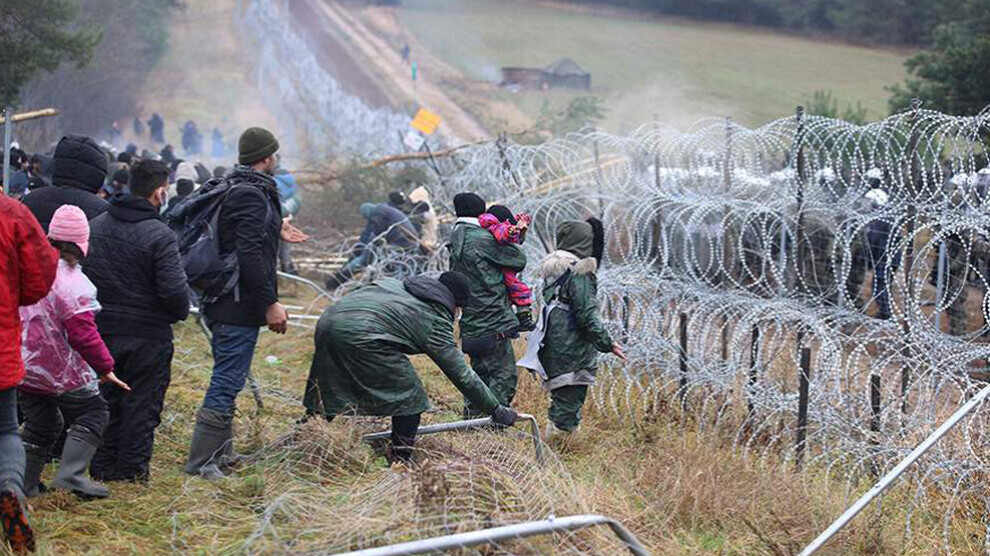KNK sends delegation to Belarusian-Polish border
The Kurdistan National Congress (KNK) has sent a delegation to the Belarusian-Polish border to advocate for a quick and humane solution in view of the dramatic situation of the migrants there.
The Kurdistan National Congress (KNK) has sent a delegation to the Belarusian-Polish border to advocate for a quick and humane solution in view of the dramatic situation of the migrants there.

The Kurdistan National Congress (KNK) has sent a delegation to the EU's external border. In view of the dramatic situation of migrants in the border area between Belarus and Poland, the delegation wants to advocate for a quick and humane solution for the people, according to a statement. The delegation also includes Ahmed Karamus, co-chairman of the Kurdish National Congress. On the agenda are meetings with the authorities of both countries.
For days, thousands of migrants without supplies have been harboring in the cold in Belarus on the EU border with Poland. Most of them are Kurds from Iraq, including many women and children who urgently need help. The KNK criticizes the international community for closing its eyes to the situation on the Belarus-Poland border for far too long. So far, there are said to have been at least seventeen documented deaths among the migrants.
On Friday, representatives of several aid organizations, including the International Organization for Migration (IOM), visited the refugees in the tent camps on the EU's external border for the first time, the border guard in Minsk announced. According to Belarusian authorities, about 2,000 people continue to hold out there. The United Nations Refugee Agency (UNHCR) confirmed the arrival of refugee workers.
While the EU, Belarus and the neighboring country Russia speak of a "humanitarian catastrophe", a UNHCR statement said the focus must now be on preventing deaths and accommodating people in safe places in Belarus. Earlier, Belarusian president Alexander Lukashenko, who is held internationally responsible for the situation, had also announced that pregnant women and children would be housed in sanatoriums.